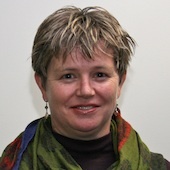
Margaret is the Head of the Centre for Population Health at the Burnet Institute and Senior Visiting Infectious Disease Physician at the Alfred Hospital. Her principal research interests are in the epidemiology and clinical management of blood-borne viruses (HIV, hepatitis B and hepatitis C) and sexually transmitted infections.

Stuart is a Principal Research Fellow, Justice Health in the Centre for Health Policy, Programs and Economics at the School of Population Health, University of Melbourne. His principal research interests are in the health of justice-involved populations, particularly prisoners and ex-prisoners.

Professor Paul Dietze is the Director of the Behaviours and Health Risks Program at the Burnet Institute. With over 20 years’ experience he is one of the leading researchers in the alcohol and other drug sector in Australia with a history of significant and innovative research into the impact of alcohol and other drugs in the community. He has played a pivotal role in work examining drug overdose and responses since the late 1990s, including the development of WHO guidelines for the community management of opioid overdose in 2014.

Mark is Head of the Public Health Discipline at the Burnet Institute and co-Head of the HIV Elimination and Justice Health Research Programs at the Burnet Institute. His research activities focus on improving understanding of the transmission and impact of blood borne viruses and sexually transmitted and among key risk populations and in community implementation trials to reduce the transmission and impact of these infections

Ashleigh has worked at the Burnet Institute since 2017 and is a public health epidemiologist and post-doctoral research fellow. Ashleigh works across the Disease Elimination and Harm and Risk Reduction at the Burnet. Her research focuses on viral hepatitis elimination among people with HIV and drug-related harms among people who inject drugs. Since 2020, Ash has coordinated the National Naloxone Reference Group, supporting the expansion of the take-home-naloxone program. Ashleigh completed her PhD at the Burnet Institute in 2022, where she explored mental health morbidity and service access among men leaving prison who reported a history of injecting drug use. Ashleigh also has a background in clinical nursing working as a registered nurse, specialising in mental health. Key research interests include: infectious disease epidemiology, hepatitis C elimination, injecting drug use, drug-related harms, supervised injecting rooms, women’s health.

Reece commenced his Doctor of Psychology (Clincical and Forensic) in 2016, under the supervision of Professor James Ogloff from the Centre for Forensic Behavioural Science and Associate Professor Mark Stoové. His work focuses on reoffending and mental health in a population of people who inject drugs. As part of his Doctor of Psychology, Reece is working on the PATH Cohort Study using record linkage.
Tania is based at the School of Population Health, University of Queensland where she works with Dr Rob Ware and Prof Gail Williams. Her PhD explores the optimal recruitment and retention strategies for longitudinal studies with People who Inject Drugs by investigating how the impact attrition has on study results can be mitigated. Through this research, novel counterfactual and regression models will be developed to assess how recruitment and attrition bias impacts on the generalisability and reliability of study outcomes.
Melinda's project, entitled 'The Role of Social Networks in Recovery from Injecting Drug Use', will be conducted in conjunction with Turning Point Alcohol & Drug Centre from 2013-2016. It will examine the composition and quality of the social networks to which people who inject drugs in Victoria belong, whilst in the community, and whilst in residential treatment. Drawing on Social Identity Theory and Self-Categorisation Theory, changes in social networks will be explored in relation to shifts in social identity. The aim of the project is to explore mechanisms behind social identity change with a view to enhancing recovery options for those who choose to access treatment. Melinda is supervised by Associate Professor David Best and Professor Dan Lubman.
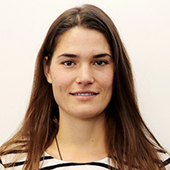
Sophia completed her Master’s at the Burnet Institute in 2017 and commenced her PhD with Monash in 2019. She has a particular interest in qualitative research seeking to understand and address barriers to wellbeing among marginalised populations, including people who inject drugs, prisoners, and gay and bisexual men living with HIV. Supervised by Professor Mark Stoove and Dr Alisa Pedrana, her PhD focuses on better understanding the socio-cultural context of injection drug use among gay and bisexual men.

Michael is a PhD student at the Burnet Institute with Monash University’s School of Public Health and Preventative Medicine. He commenced his PhD in 2019 under the supervision of Professor Mark Stoove and Professor Paul Dietze. Using data from the Prison and Transition Health Cohort Study, Michael’s PhD will investigate how the use of opioid substitution therapy during incarceration and post-release influences substance use, health and mortality outcomes among people who inject drugs. Michael is also employed as a Research Assistant at the Burnet Institute.

Penny commenced her PhD in 2017, under the supervision of Professor Paul Dietze. Her work focuses on health service utilisation of people who inject drugs. As part of her PhD, Penny is working on the SuperMIX study using record linkage. Penny is employed as a Research Assistant at the Burnet Institute working with the Centre for Research Excellence in Injecting Drug Use (CREIDU) and the National Naloxone Reference Group (NNRG).

Rebecca completed her PhD at the Burnet Institute, where she worked with Professor Margaret Hellard and Dr Mark Stoové. Her doctoral research examined drug-related morbidity and mortality among prisoners and ex-prisoners in Victoria and Queensland. Rebecca was also supervised by Associate Professor Stuart Kinner, based at the University of Melbourne.

Renae completed her PhD based at Curtin University's National Drug Research Institute Melbourne Office. For her doctoral research, she undertook a critical analysis of the rise of the ‘recovery’ concept in the Australian alcohol and other drug sector. The project involved three components: (1) a textual analysis of the recovery concept in national and state policy and practice documents supplemented by in-depth interviews with national and state policy-makers and practitioners; (2) an analysis of the existing and developing research evidence on recovery; and (3) in-depth qualitative interviews and fieldwork with people who inject drugs focusing on their understandings and experiences of recovery in various treatment contexts. Renae was supervised by Professor David Moore.
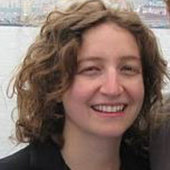
Rachel completed her PhD at the Burnet Institute, with Professor Margaret Hellard, Dr Jason Grebely and Dr Campbell Aitken. Her doctoral research employed a multidisciplinary approach to investigate hepatitis C transmission in a social network of people who inject drugs.
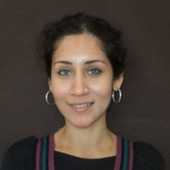
Dhanya completed her PhD based at the Burnet Institute, where she worked with Professor Paul Dietze and Dr Mark Stoové. Her PhD explored service utilisation by people who inject drugs using the Melbourne Injecting Drug User Cohort Study (MIX) and the Victorian Department of Health emergency services utilisation data.

Dr Joseph Doyle is an infectious diseases physician at the Alfred and Royal Melbourne Hospital. He is a senior lecturer and NHMRC Research Fellow at the University of Melbourne, and is co-head of Hepatitis Research Program at Burnet Institute. He has a particular interest in HCV treatment scale up and elimination strategies.

Maryam completed her PhD based at the Kirby Institute for infection and immunity in society, working with Professor Greg Dore and Dr Jason Grebely. Her doctoral research investigated barriers to the assessment and treatment of hepatitis C in people who inject drugs.
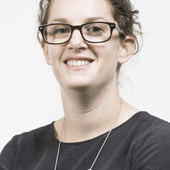
Working with Professor Paul Dietze, Professor Louisa Degenhardt and Dr Peter Higgs at the Burnet Institute, Danielle’s PhD explored health and social outcomes among young people who inject drugs, through the Melbourne Injecting Drug User Cohort Study (MIX).

Stelliana is a PhD student at the Burnet Institute with Monash University. She is supervised by Professor Margaret Hellard, Dr Peter Higgs and Dr Joe Doyle. Her PhD focuses on exploring the impact of direct acting antiviral hepatitis C treatment on health, well-being and everyday life, particularly among people who inject drugs. During her PhD Stelliana will be developing a questionnaire to measure the personal and social impact of hepatitis C and treatment.

Shelley started her career as a nurse, then moved on to different roles in the youth health sector including support worker roles, project development and research. She worked in a research evaluation role for a Cambodian NGO working with children in prison. She has a BA in Community Development, and completed a Masters by Research in Primary Health Care. Shelley is a PhD candidate at Curtin University. Her research is focused on young adult prisoners with a history of injecting drug use. She is also a research assistant at the Burnet Institute, involved in the Prison and Transition Health study. Shelley is passionate about research that addresses the issues and needs of marginalised groups, including in particular, people involved in the criminal justice system, and people who inject drugs.

Ashleigh has worked at the Burnet Institute since 2017 and is a public health epidemiologist and post-doctoral research fellow. Ashleigh works across the Disease Elimination and Harm and Risk Reduction at the Burnet. Her research focuses on viral hepatitis elimination among people with HIV and drug-related harms among people who inject drugs. Since 2020, Ash has coordinated the National Naloxone Reference Group, supporting the expansion of the take-home-naloxone program. Ashleigh completed her PhD at the Burnet Institute in 2022, where she explored mental health morbidity and service access among men leaving prison who reported a history of injecting drug use. Ashleigh also has a background in clinical nursing working as a registered nurse, specialising in mental health. Key research interests include: infectious disease epidemiology, hepatitis C elimination, injecting drug use, drug-related harms, supervised injecting rooms, women’s health.